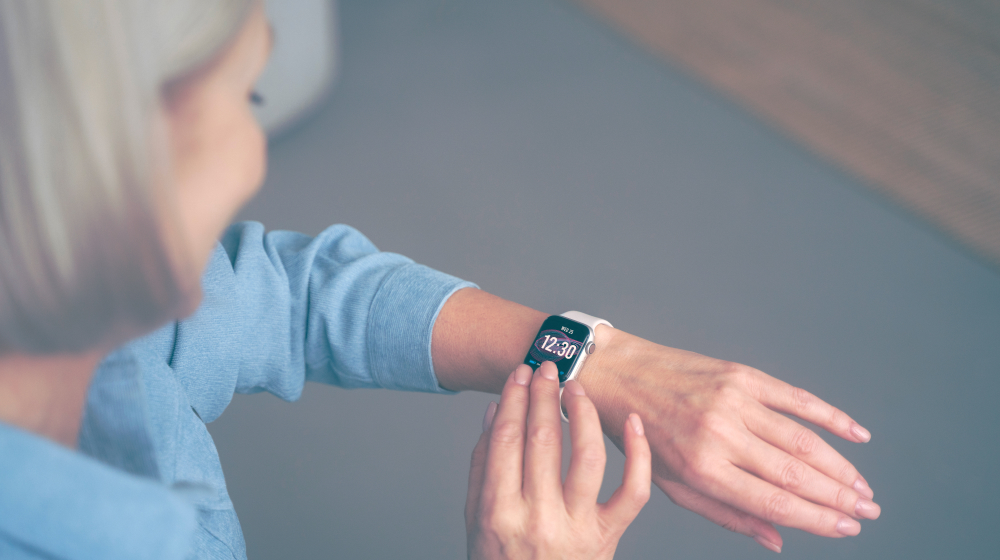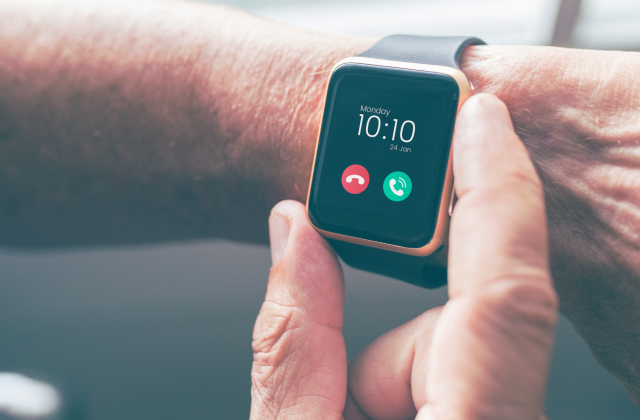Smart Watches for Seniors: Enhancing Safety and Health Monitoring
In an era where technology is seamlessly integrated into daily life, Apple Watches have emerged as a significant tool for seniors, offering a range of features tailored to their needs. From emergency alert systems to health monitoring, Smart Watches provide a blend of safety and convenience for the elderly.
Emergency Alert System on iPhone and Apple Watch
One of the standout features of Apple Watches is the emergency alert system. It allows seniors to quickly contact emergency services if they find themselves in a precarious situation. This feature is easily accessible both on the iPhone and the Apple Watch, ensuring help is just a tap away.
Apple’s Commitment to Senior Care
Apple demonstrates its commitment to the elderly through continuous enhancements in its devices. The Apple Watch and iPhone come equipped with features designed to cater to the unique needs of seniors, making these devices not just tools of convenience but also of care.
Smartwatch Fall Detection: A Lifesaver
Fall detection is a critical feature for seniors. The Apple Watch smartly incorporates this, automatically detecting a hard fall and sending an alert to emergency contacts if the user is unresponsive after a certain period. This can be lifesaving, especially for seniors living alone.

Apple Watch: A Medical Alert System
The Apple Watch doubles as a medical alert system. It can notify emergency services and predefined contacts in case of a medical emergency. With features like heart rate monitoring and the ability to detect irregular rhythms, it offers peace of mind to both the user and their loved ones.
Health Monitoring for Seniors
Health monitoring is another area where the Apple Watch excels. It tracks various health metrics, which are particularly beneficial for seniors. It includes monitoring heart rate, activity levels, and even blood oxygen levels, helping to keep a close eye on crucial health indicators.
Best Apple Watch Models for Seniors
When considering the best Apple Watch for seniors, models with larger screens and simpler interfaces are often recommended. The ease of use is a key factor, along with the availability of health and safety features.
How to Use Apple Watch in Emergencies
The ability to call 911 directly from an Apple Watch is a vital feature. It ensures that in any emergency, help can be summoned quickly and efficiently, a function that’s particularly useful for seniors who might find themselves in situations where they can’t reach their phone.
Pros and Cons of Apple Watch for Seniors
While the Apple Watch offers numerous benefits for seniors, including health tracking and emergency features, there are considerations to keep in mind. The cost can be a factor, and some seniors may find the technology challenging to navigate. However, the safety features and health benefits often outweigh these concerns.
Conclusion
Apple Watches have proven to be more than just a technological innovation; they are a tool of empowerment for seniors. With features like fall detection, emergency alerts, and health monitoring, they offer a blend of safety, health management, and peace of mind for both the elderly and their caregivers. As technology continues to evolve, the potential for these devices to enhance the lives of seniors is immense.
If you or member of your family needs a home care – Angel Care, Inc., New York home care agency here to help, rich us now by phone at 917-507-7500 or by e-mail at [email protected].

Having a good caregiver who fulfills the job needs is a true blessing. A caregiver's role is not just bathing and grooming but instead being a support system for the person needing assistance. To hire the best caregiver, one must look for technical and medical abilities, organization skills, and observation skills in the applicants. However, having a broad list of interview questions for caregivers might help you prioritize your requirements and expectations. Here, we have listed down some sample questions to ask a caregiver to help you evaluate their abilities while hiring. The 20 Most Common Caregiver Interview Questions Have a sneak peek into the most commonly requested caregiver interview questions and answers before scheduling the interview. Can you tell me about your experience as a caregiver? When you ask your caregiver questions related to their experience, always look for their overall demeanor and enthusiasm towards their job. It shouldn't be like they are working for mere money. Instead, their experience should demonstrate a deep understanding and concern for the well-being of their care recipients. What inspired you to pursue a career in caregiving? Why do you want to be a caregiver? It is a broader spectrum question that tells what excites them about their job. You should look for why they have a passion for helping others if they are passionate enough about their job. When you ask this question, make sure the answer reflects empathy and how well-connected the caregiver is with the past patients. Do you have any formal training or certifications related to caregiving? This is one of the most important home health aide interview questions, reflecting the qualifications and eligibility for the role of home health aide. Check if the caregiver holds any certifications from reputable organizations. These certifications mean that the caregiver has gone through the training and assessment essential for caregiving principles and practices within the recipient’s home. How do you handle situations when a care recipient's needs change suddenly or unexpectedly? When you ask the caregiver about how they will respond when there is a sudden change in the needs of their patient, you look for adaptability and flexibility in their answer. Ask for their approach to quickly adapt their care plans and routines to accommodate changes in their care recipients' conditions or needs. Can you describe a challenging caregiving situation you've encountered and how you handled it? Caregivers should be able to maintain their composure even in challenging and stressful situations. This is what you need to look for while asking this question. They should be able to think clearly and make informed decisions when faced with difficult circumstances. How do you build trust and rapport with care recipients? Among other questions for assisted living interviews, you must know how your potential caregiver takes the process of trust and rapport building. The answer must express a genuine interest in getting to know their care recipients as individuals. They should be curious about their life experiences, preferences, and values, treating them as an equal human. What are some other questions to ask caregivers for elderly and special people? What tasks and responsibilities have you performed in previous caregiving roles? Look for their expertise with the elderly and those who need special care. Are you comfortable assisting with activities of daily living (ADLs), such as bathing, dressing, and toileting? How do they make the care recipient comfortable? How do you prioritize the safety and well-being of care recipients in their home environment? What measures do they take? What equipment do they need? Do you have experience working with individuals with specific medical conditions or special needs? Discuss the specific medical condition you want help with and see if they have experience in caring for such recipients. How do you adapt your caregiving approach to accommodate the preferences and routines of each care recipient? Look for how quickly they adapt. Give them a situation and evaluate their answer. Can you explain your understanding of confidentiality and privacy in a caregiving context? See if they understand the concept of ethical caregiving. In fact, when you discuss their past experience, observe if they are sharing anything inappropriate about their past care recipients. How do you handle situations where a care recipient may be resistant to receiving care or assistance? Here, the best in communication and patience wins. Are you familiar with any assistive devices or technologies that can aid in caregiving tasks? Such interview questions for caregivers let you know how adept they are with the latest medical technologies. How do you stay updated on best practices and advancements in caregiving techniques? Look for answers that show their commitment to continuous learning and professional development. Can you provide an example of how you effectively communicated with a care recipient's family or healthcare team? When you compile questions to ask caregivers for the elderly, keep this one on the top. This shows their ability to articulate information clearly, using language that is understandable to both family members and healthcare professionals. How do you manage your time and prioritize tasks when caring for multiple individuals? Here, you look for planning and organizational skills. Have you ever had to administer medication or perform any medical procedures under supervision? Look for the approach and if they have taken the formal training. How do you ensure that the emotional and social needs of care recipients are met in addition to their physical needs? As we said earlier, it is not just about bathing and grooming. It is also about emotional and social needs. Ask for their approach to building a connection with the recipients. Can you share any personal experiences or qualities that you believe make you a strong caregiver? In their answer, look for a passion to help others. Final Thoughts Caregiving is not just about assisting in day-to-day life; in fact, it is about spending a portion of your time providing care and comfort to the person in need. It takes empathy, connection, and your medical abilities to be a good caregiver. On the other hand, asking the right caregiver interview questions might help the employer lay down their expectations in front of the employee before hiring.

In the ever-evolving digital age, technology has become an invaluable ally for caregivers in managing the complexities of elder care. With a plethora of apps available, caregivers can now access resources, tools, and support right at their fingertips. This article highlights some of the best apps for caregivers, focusing on their features and benefits in enhancing senior care. Elder Care Apps: A Gateway to Simplified Caregiving Elder care apps are specifically designed to assist caregivers in managing the daily needs of the elderly. These apps offer various functionalities, from medication reminders to health monitoring, making them an essential part of modern caregiving. Senior Care Apps: Streamlining Daily Tasks Apps tailored for senior care help streamline various caregiving tasks. They offer features like calendar management, medication tracking, and emergency alerts, significantly easing the burden on caregivers and ensuring seniors receive timely care. Comparison: Lotsa Helping Hands vs CaringBridge When considering apps for caregiving, two notable names often come up: Lotsa Helping Hands and CaringBridge. Both apps provide platforms for organizing care and support for those in need. Lotsa Helping Hands is known for its community-based approach, allowing caregivers to create a care calendar and request help from friends and family. On the other hand, CaringBridge focuses on health journey updates and offers a platform for families to share information and receive emotional support. Elderly Care Apps: Focused on the Needs of the Elderly Elderly care apps are designed with the specific needs of older adults in mind. These apps often include features like large text options, simple navigation, and voice commands to cater to the potential limitations seniors may face in using technology. The Best Apps for Caregivers CareZone: This app is a comprehensive tool for managing health information, medications, and doctor’s appointments. It's especially useful for caregivers managing multiple aspects of elder care. MyMeds: Medication management is a critical part of elder care, and MyMeds helps in ensuring medications are taken correctly and on time. Caring Village: This app provides a centralized platform for caregivers to coordinate care, share updates, and store important health information. ElderCheck Now: Offering a quick and effective way to check on the elderly, this app lets caregivers receive health status updates, including heart rate and location. Choosing the Right App for Elder Care When selecting an app for elder care, it's important to consider the specific needs of the senior and the caregiver. Factors like ease of use, available features, and the level of care required play a crucial role in determining the most suitable app. Conclusion Technology, in the form of various caregiving apps, has brought a revolution in the way elder care is managed. These apps not only simplify the caregiving process but also provide peace of mind, knowing that the elderly are being cared for with the help of advanced tools. As the caregiving landscape continues to evolve, these apps will undoubtedly play a central role in enhancing the quality of life for both caregivers and the elderly. If you or a member of your family needs home care, or if you are looking forward to becoming a caregiver with Angel Care, Inc., a New York home care agency, we are here to help. Reach us now by phone at 917-507-7500 or by e-mail at [email protected].



